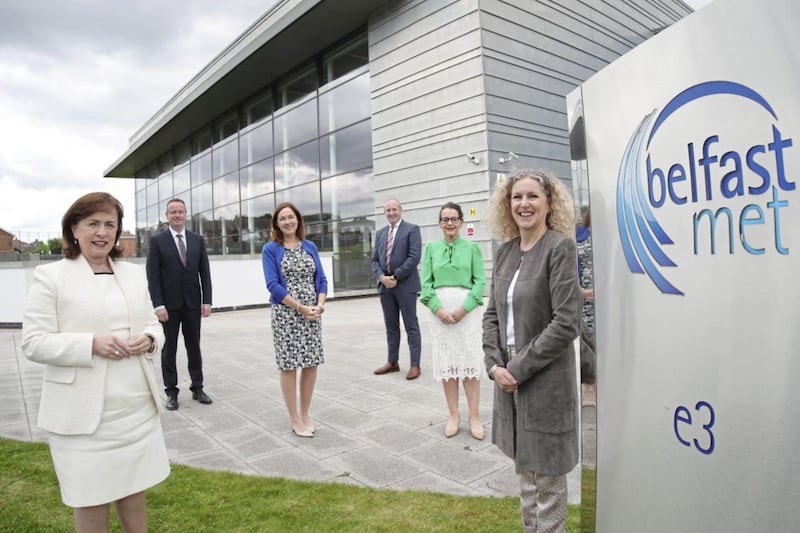THE Department for the Economy has officially launched the north’s first skills strategy in more than a decade.
‘Skills for a 10X Economy’ was originally published by the former economy minister Diane Dodds in May 2021.
The lengthy document, which features 34 proposals to overhaul Stormont’s strategic approach to skills, went through a public consultation exercise last summer.
With Stormont about to be dissolved, the current and outgoing economy minister Gordon Lyons has finally launched the policy paper today (Friday).
Mr Lyons said the strategy “sets out how we will deliver substantial growth in qualifications in technical and professional skills through our further education colleges”.
Describing it as a key pillar of the department’s wider ‘10X Economic Vision for Northern Ireland’, he said it sets out plans to focus on innovation by increasing further education qualifications in technical and professional skills and rebalancing higher education towards science, technology, engineering and maths (STEM).
But realising those all the goals within the paper will require substantial investment.
Skills for a 10X Economy states a ‘real terms’ return to 2010/11 levels of expenditure would require the executive to invest an additional £461 million per annum.
The paper also states that since 2011, policy decisions on higher education tuition fees have limited the capacity of universities to raise revenue, leaving per capita student funding behind other UK regions.
“As we look to accelerate the economic recovery, our vision is to make Northern Ireland one of the world’s elite small economies. The skills of our workforce are central to achieving this goal,” said Mr Lyons.
“Our local workforce is already talented, but it is important that we capitalise and build on that foundation. Access to skills and talent is the number one issue for business right across all sectors of our economy.
“For every step up the skills ladder an individual takes, the greater the potential reward. People with degrees on average earn over 50 per cent more than those with low-level qualifications. By investing in our skills and talent, we will create more and better job opportunities with greater earning potential for everyone.
“In turn, this will lead to better individual wellbeing and a better society for everyone.”




